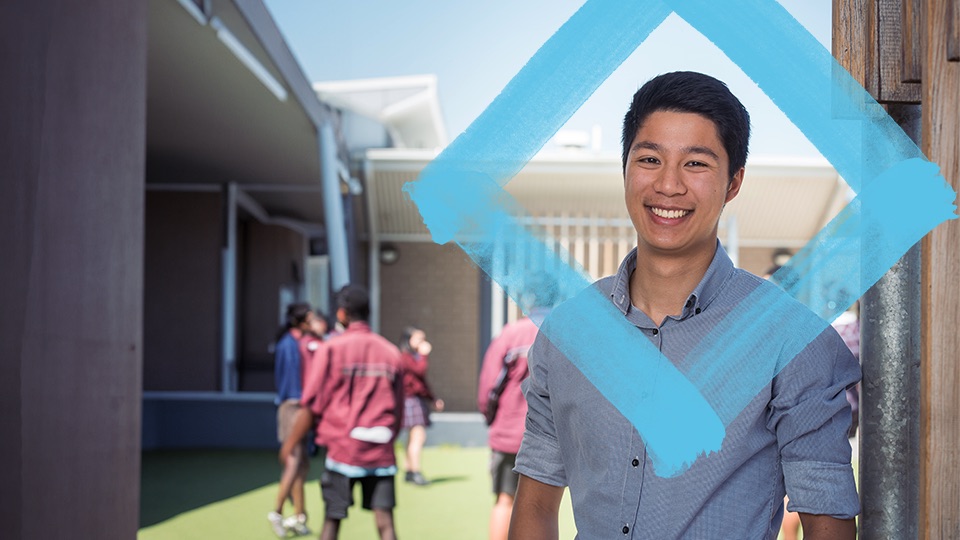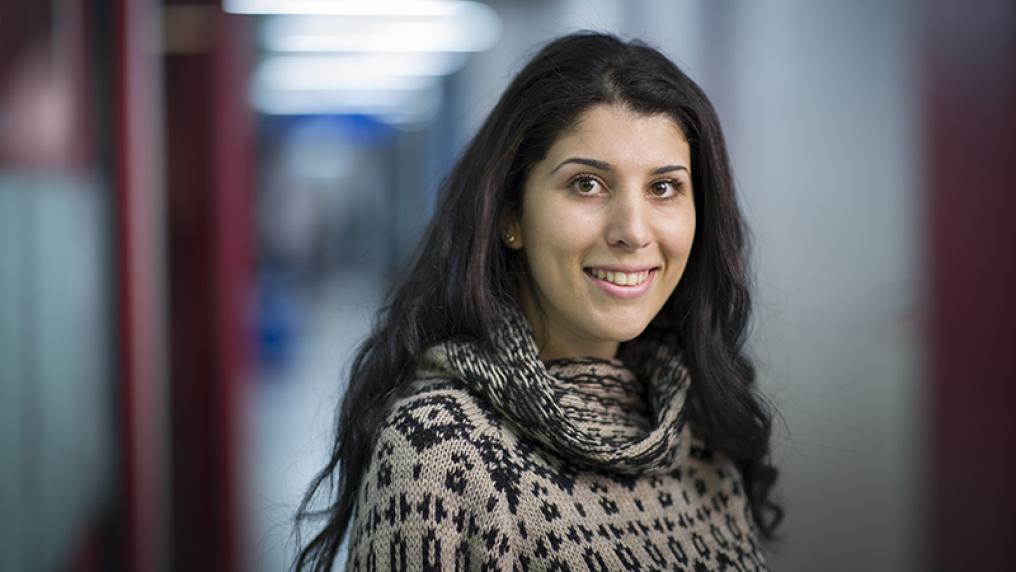Indigenous Perspectives in Learning and Teaching
Unit code AEK7001 Credits 12This unit connects with the unit learning outcomes of articulating and embodying the ideologies, epistemologies and cosmologies of socially-just education through critically reflective and reflexive teaching, Indigenous-led learning, equity and access, as well as critically applying knowledge of educational issues to improve classroom practice and strengthen students' relations with their local community. The overall goal of this unit is to embed Aboriginal and Torres Strait Islander peoples, places, and positionalities in compulsory school curriculum content and pedagogy through the acknowledgement of the past and present and future aspirations held by Indigenous peoples, particularly the First Nations people of Australia, and their communities of belonging, in order to value the wealth and diversity of our shared future.
This unit aims to develop critical understandings of curriculum design and content; ongoing connections of people to place and space; theoretical constructs including post-colonialism and decolonisation; engagement beyond dominant culture discourses, descriptions and solutions; key issues of self-determination and sovereignty; culturally appropriate pedagogical and curriculum materials; privileging of Indigenous and post-colonial ways of knowing, being and doing education in the 21st Century; challenges in addressing systemic change required to meet the needs of Indigenous students and Indigenous educators; strategies for inclusion that value Aboriginal and Torres Strait Islander students in school; and understanding how to challenge the colonial standpoints that hinder equitable outcomes for Indigenous students.
Learning outcomes
On successful completion of this unit, students will be able to:
- Critically review Indigenous education curriculum and pedagogies to gain deeper understanding of Aboriginal and Torres Strait Islander practices, theories and philosophies;
- Critically review curriculum materials and resources in order to identify approaches and strategies that support the inclusion of Aboriginal and Torres Strait Islander perspectives across the curriculum in schools with a view to promoting reconciliation in today's society;
- Clarify the professional complexities in Indigenous-related teaching policy and how these align with student needs and articulate a standpoint of practice that can negotiate these complexities.
- Describe strategies that support Aboriginal and Torres Strait Islander students’ wellbeing and safety working within school and/or system, curriculum and legislative requirements.
Curriculum and Multi-modal Learning
Unit code EED5102 Credits12Pre-service teachers will study and experience the philosophy, theories and possibilities of multi-modal teaching and learning. The unit covers classroom arrangements, classroom unit and lesson planning and implementation, and how curriculum, pedagogy and assessment strategies are enacted and reported to support students' needs. Additional aspects will include legal and safety concerns of teaching and student welfare issues. Continuing application of the Praxis Inquiry Protocol will support investigations and theorising of curriculum, teaching, learning, social justice and research. Questions involving key features of classroom situations will be explored such as how new learning is supported, how are new student understandings formed and how do we know what has been learned?
Multi-modal learning will be explored to develop an understanding of different teaching practices support students' learning and understanding in key areas such as literacy and numeracy. This will involve the application of information technology into teaching that includes such approaches as, inquiry learning, personal learning plans, experiential learning and cooperative learning.
Learning outcomes
On successful completion of this unit, students will be able to:
- Investigate approaches to multi-modal learning demonstrating a range of teaching strategies for using Information Communication Technology (ICT) to expand curriculum opportunities and accessibility for students from diverse backgrounds;
- Incorporate social justice principles in relation to inclusion and diversity into planning and assessment;
- Articulate a sound understanding of assessment strategies and practices, including formative and summative approaches to assess students learning;
- Analyse professional responsibility of teachers in supporting the safe, responsible and ethical use of digital resources to support classroom practice.
- Understand the role of external professionals and community representatives in broadening teachers’ professional knowledge and practice.
- Participate in an academic community of discourse through reflective and critical engagement in academic texts and understanding of principles of academic integrity.
Literacy and Numeracy in Secondary Education
Unit code EED6103 Credits12This unit will explore the literacy and numeracy demands of secondary school students during their schooling. It will consider teaching and learning approaches that support secondary school students to be numerate and literate citizens. Pre-service teachers will consider the effectiveness of school structures, policy and procedures. In addition, they will also investigate the intersections of literacy and numeracy across curriculum, lesson planning, and pedagogy. Preservice teachers will also explore the literacy and numeracy challenges that are often encountered by students from EAL (English as an Additional language) and students from diverse cultural backgrounds. They will also investigate the use of technology to create a safe classroom environment when teaching numeracy and literacy. Preservice teachers will integrate contemporary literacy and numeracy frameworks in their specialisation areas. Practitioner based research that draws on a critical theory approach will be integrated in this unit.
Learning outcomes
On successful completion of this unit, students will be able to:
- Demonstrate an understanding of literacy and numeracy teaching approaches in secondary school curriculum;
- Reflect on literacy and numeracy challenges that are faced by EAL learners and learners from refugee and migrant backgrounds and articulate a standpoint on inclusive literacy and numeracy teaching strategies;
- Understand the role of data, policy documents and professional standards in the construction of literacy and numeracy curriculum tasks;
- Investigate the use of technology to create a safe classroom environment when teaching numeracy and literacy;
- Demonstrate understanding of strategies to involve and report to parents/carers regarding literacy and numeracy outcomes/educational process.
Professional Practice and Student Wellbeing
Unit code EED6104 Credits12In this unit preservice teachers will be equipped with skills and knowledge needed for a successful secondary school placement. Preservice teachers will engage with a range of activities tied to working with school stakeholders in professional and collaborative ways. Professional codes of conduct, including mandatory reporting, Duty of Care and Child Protection will be examined. Methods of effective communication, cultural differences, resolution of conflict, access and equity and addressing workplace risk and reporting protocols and procedures when working with secondary school students will be examined. This unit will also draw attention to factors that hinder or support student wellbeing in secondary schools. Trauma informed pedagogical approaches will also be explored through a range of different frameworks, theories and models, through the lens of secondary school students. This unit will also incorporate theories of attachment, trauma and the development of children and young people that can lead to complex, challenging and trauma-related presentations. The professional experience of this unit comprises a 5 day school placement for Master of Teaching (Secondary Education) students.
Learning outcomes
On successful completion of this unit, students will be able to:
- Articulate a comprehensive understanding of the complexities of the teacher’s role and the implications for practice, including: Professional Standards; policies and processes; codes of ethics and conduct and legal and professional responsibilities;
- Demonstrate a critical understanding of a range of effective verbal and non-verbal communication and interpersonal skills and strategies to support learner engagement ;
- Contextualise research frameworks on trauma and the impact of trauma on secondary school student learning;
- Develop and trial pedagogical approaches contributing to the wellbeing and flourishing of school students;
- Investigate the approaches used by schools to foster the academic, social and emotional wellbeing of students in schools.
Inclusive Education
Unit code EED6105 Credits12This unit supports pre-service teachers to become aware and committed inclusive educators. Pre-service teachers will explore their own positionality as a way of understanding the barriers and enablers to inclusion. They are encouraged to connect theory and practice by using their own experiences to inform their understandings and to expand their knowledge through research and peer sharing. The unit focuses on how pre-service teachers can support and include students from diverse backgrounds across areas such as socio-economic background, culture, race, Indigeneity, gender, sexuality and ability/disability. This unit draws on social justice theoretical models of practice to explore the standpoint of students who have been historically marginalised in education. A critical pedagogy framework will be used to challenge dominant discourses that perpetuate notions of privilege, power and oppression. Pre-service teachers will articulate their understandings of inclusive education by drawing on curriculum requirements, policy documents and professional standards. Preservice teachers will present their personal theoretical standpoint of what it means to be an inclusive and culturally responsive teacher with reference to a range of literature in the field.
Learning outcomes
On successful completion of this unit, students will be able to:
- Use a critical lens to explore social justice issues in society and within schools and consider culturally responsive teaching strategies to address educational barriers and create opportunities for students.
- Articulate a standpoint on inclusive education by drawing on a range of practices, principles and theories to engage students from diverse backgrounds and across a range of learning needs and abilities.
- Draw on legislation, curriculum and theory to develop and present differentiated learning experiences that promote inclusion for a diversity of students, including those with a disability.
- Explore and interrogate positionality in order to understand the barriers and enablers to inclusion.
- Engage in reflexive dialogue around inclusion in secondary schools.
Research Methods in Education
Unit code EED7001 Credits12Research is an integral element of education. The intention of this unit is to provide students, both practitioner researchers and those who wish to advance in their trajectory as researchers with a conceptual and critical overview of educational research methodologies and methods. Students will familiarise themselves with methodological literature, explore current literature related to their chosen area of inquiry and experience developing a research proposal. Students are advised to complete this unit preceding the minor thesis, capstone or curriculum specialisation.
Learning outcomes
On successful completion of this unit, students will be able to:
- Analyse and critique contemporary perspectives and theories related to educational research including respectful research tied to Aboriginal and Torres Strait Islander histories, cultures and language;
- Explicate the essential elements and processes involved in undertaking quality educational research;
- Elucidate an understanding of the need for the ethical conduct of research, and an awareness of the processes for applying for ethics approval when undertaking educational research;
- Critically reflect on and evaluate different approaches to research;
- Design a research project;
- Understand how research can be used to inform literacy and numeracy strategies in teaching contexts.
- Demonstrate and understanding of how the research process can help to develop an understanding of verbal and non verbal communication strategies that support student engagement
Approaches to Teaching and Learning
Unit code EED7002 Credits12In this unit pre-service teachers orientate themselves to the teaching profession. Pre-service teachers will develop in-depth knowledge of schooling and teaching within the context of professional guidelines and ethical codes of conduct. Pre-service teachers explore the philosophy and possibilities of education including student learning. In addition, they investigate effective classroom management and innovative curriculum design and lesson planning.
Learning outcomes
On successful completion of this unit, students will be able to:
- Investigate educational teaching and learning practices that contribute to positive student behaviour and learning;
- Articulate aspects of student development including their physical, social and intellectual needs;
- Engage and communicate their knowledge, understanding, and application of effective lesson plans and learning sequences;
- Demonstrate their knowledge and understanding of diverse theoretical paradigms, professional guidelines, and ethical codes of conduct.
- Understand the relevant legislative, administrative and organisational policies and processes required for teachers according to school stage.
- Use Curriculum, assessment and reporting knowledge to design learning sequences and lesson plans.
Engaging with the Profession
Unit code EED7004 Credits24Prerequisites
AEK7001 - Indigenous Perspectives in Learning and Teaching
EED7005 - Primary Specialisation Capstone
Successful completion of the Literacy and Numeracy Test (LANTITE) for Initial Education students. Satisfactory completion of 38 days of practicum.
(Or equivalent to be determined by unit coordinator)
This final unit in the course enables postgraduate students to encapsulate their work in the Masters of Teaching (EMES) course. The unit enables students to work with lecturers, colleagues, principals, other school leaders and teachers in meeting National Standards in order to comply with registration requirements. Students will undertake a critical overview of teachers’ professional roles and responsibilities and will develop an awareness of the organisational and legal conditions of teachers’ work, informing relationships with and teaching students, planning and managing curriculum and pedagogy, working with colleagues in leadership teams, and engaging with the school and wider community.
Students will engage in professional experience in Secondary school, where they will refine their ability to organise content into effective teaching sequences, set achievable goals for students and demonstrate their ability to effectively use a range of resources. Students will also demonstrate the capacity to gather and interpret student assessment data to evaluate student learning and modify teaching practice.
This unit connects with the course intentions of guaranteeing that graduate teachers have deep and connected understandings of the content they are teaching and the pedagogical approaches for implementing the curriculum, in addition to engaging professionally with colleagues, parents, carers and the community. This unit also connects to the course learning outcomes of displaying competence and sophistication in a range of oral and written communication techniques, including in the use of Information and Communication Technologies, to engage and connect with students, their parents/carers and the wider community, as well as recognition of the importance of fostering students’ creative skills, and problem solving strategies to prepare them to confront and pro-actively solve 21st Century challenges. Students will apply their critical understandings of the changing nature of society to the development of educational policies, curriculum, pedagogy and assessment processes relevant to school students’ needs.
Students will develop skills needed to seek employment, including preparing job applications, responding to selection criteria, interview techniques and awareness of professional networks and professional learning opportunities.
Learning outcomes
On successful completion of this unit, students will be able to:
- Contextualise and articulate their understandings of the legislative, administrative and organisational requirements of teachers’ work, including policies and processes required for teachers according to school stage, and the key principles described in codes of ethics and conduct for the teaching profession, including understanding strategies for working effectively, sensitively and confidentially with parents/carers;
- Analyse and demonstrate an understanding of how students learn, including a personal and social commitment to students and the enhancement of learning outcomes
- Develop a broad knowledge of educational practices, including: the ability to organise content into an effective learning and teaching sequences, seeking and applying constructive feedback from mentors and teachers to improve teaching practices, managing curriculum and pedagogy, demonstrating the capacity to organise classroom activities and provide clear directions, and capacity to interpret student assessment data to evaluate student learning and modify teaching practice;
- Demonstrate and enhance their educational research skills as part of the graduate teacher’s readiness to join the profession within the context of the Australian Professional Standards for Teachers – Graduate Career Stage including the gathering and reporting of evidence of their knowledge of curriculum, content, assessment and teaching strategies.
Capstone Research Investigation
Unit code EED7108 Credits24Students conduct a systematic literature review in relation to an educational problem. In doing so, they draw on theory, knowledge and skills developed through their degree. Through negotiation with their lecturer, students undertake a review of relevant literature, by applying appropriate selection criteria for choosing and analysing the literature. Students collaborate to produce an evidence-based research report. The report demonstrates skilfulness in engaging in systematic processes of inquiring into a relevant topic.
Learning outcomes
On successful completion of this unit, students will be able to:
- Demonstrate comprehensive understanding regarding the Sustainability Cross Curriculum Priority: its application in various subjects across the curriculum, the relevant and appropriate resources to engage students in their learning and sources of professional learning for teachers;
- Articulate understanding regarding the big challenges of our time as expressed through the 17 United Nations Sustainable Development Goals;
- Conduct an investigation based on a systematic literature review; analyse and synthesise a range of literary materials to draw defensible conclusions;
- Communicate research findings and develop evidence-based claims;
- Collaborate to develop research capabilities.
Teacher as Practitioner and Researcher
Unit code ETS5002 Credits12In this unit of study pre-service teachers will develop their skills as reflective practitioners through explorations of data and evidence influences within education practices, including collecting and analysing data to monitor the effectiveness of teaching practices and student learning. Pre-service teachers will engage in research activities that investigate, understand and critique the Australian education system. It will involve consideration of ‘big educational ideas’ facing humanity and how local ideas interrelate to the big ideas.
Through the examination and interpretation of both quantitative and qualitative data, pre-service teachers will consider the effectiveness of school structures, policy and procedures; curriculum, lesson planning and pedagogy; assessment practices and standardised testing; in providing support for students from different social contexts, including students with disabilities, students from diverse socio-cultural backgrounds, and Aboriginal and Torres Strait Islander students. Pre-service teachers will reflect on different approaches to enact change and communicate findings to colleagues, students, parents and interested members of the community.
Learning outcomes
On successful completion of this unit, students will be able to:
- Critically engage and examine educational and social data to evaluate the effectiveness of teaching programs and improvement of school systems and teaching practices to improve student learning;
- Analyse the role and potential of educational data in respect to relevant educational, legislative, administration and organisational policies and practices to support the development of educational structures and curriculum that encourage young people to become successful learners, confident and creative individuals and informed citizens;
- Demonstrate an understanding of educational issues through monitoring and evaluating student assessment data to explore curriculum development and lesson planning to modify teaching strategies to support the learning of students from diverse backgrounds;
- Explore the influence of parents and carers in supporting student learning and what strategies can be used to bring them into the educative process;
- Demonstrate understanding of the role of external professional learning, external professionals and community representatives and how it can support the development of teachers’ knowledge and skill to modify teaching strategies.
- Participate in an academic community of discourse through reflective and critical engagement in academic texts and understanding of principles of academic integrity.
Specialisation Curriculum and Pedagogy A
Unit code ETS5003 Credits12This unit provides Pre-Service Teachers with a sound understanding of curriculum and pedagogy in their specialisation discipline areas at the 7-10 level. They will critique and investigate a range of existing resources to teach their specialisation areas, including Digital Technologies. Specific information regarding curriculum, teaching styles, interpretation and moderation of assessment data that practitioners in this discipline area used to facilitate student engagement will be examined. This unit supports pre-service teachers’ capacity to plan for and implement effective teaching and learning sequences, and create specific lesson and unit plans. In addition, students will develop their capacity to differentiate learning activities and manage classroom activities and environments through the effective use of verbal and non-verbal communication strategies.
Learning outcomes
On successful completion of this unit, students will be able to:
- Articulate an understanding of key content in the year 7-10 Victorian Curriculum in their specialisation areas.
- Analyse the principles and practices of pedagogy in their specialisation areas for teaching Years 7 – 10 with a focus on engaging and differentiating learning for diverse student cohorts in safe and challenging learning environments.
- Critique a range of pedagogical approaches and resources, including Digital Technologies, for involving parents/carers in the educative process.
- Construct, develop, and manage the implementation of classroom activities that use both verbal and non-verbal communication strategies and Digital Technologies to manage classroom environments
- Demonstrate an understanding of interpreting assessment data and using moderation practices in their specialisation areas.
Specialisation Curriculum and Pedagogy B
Unit code ETS5004 Credits12This unit provides Pre-Service Teachers (PSTs) with a comprehensive knowledge of curriculum and pedagogy in their specialised discipline areas for teaching post-compulsory certificates. PSTs will collaborate with their peers to facilitate a student-centred learning environment in order to practise innovative and engaging pedagogies for senior secondary students. PSTs will develop their capacity to plan lesson sequences at the senior level, to differentiate learning and to determine students’ knowledge using formative and summative assessment. This unit will provide PSTs with the skills and capacities to participate as competent and reflective members of the teaching profession.
Learning outcomes
On successful completion of this unit, students will be able to:
- Articulate knowledge of how students learn at senior secondary levels in their specialisation area, and the role of pedagogy, theoretical models, principles and practices of teaching senior students in developing effective teaching plans.
- Design, develop and evaluate a senior unit of work that includes a sequence of lesson plans which employ a range of teaching resources, strategies and differentiation approaches to assessment that support inclusive student participation and engagement.
- Evaluate the range of assessment strategies and how these approaches can be applied to assess senior secondary students’ learning.
Specialisation Assessment and Reporting
Unit code ETS5005 Credits12In this unit Pre-Service Teachers are focusing on both of their specialisations in the understandings around assessment and reporting. They are looking at how policy theory and practice are informing 7-12 assessment and reporting approaches, as well as the pedagogical understandings around those practices. This unit is designed at looking at the three main areas of assessment and reporting:
- Analysing student data to inform future planning including sample assessments
- Different types of feedback in the specialisations such as rubrics in their specialisation area
- The way teachers collaborate and moderate
These areas will be developed through in-class experiential activities, DET policy and standards, study guides, different theoretical practices and approaches, and evening workshops lead by experienced teachers. This unit has a unique focus and design, which is different to its preceding units. The main focus is the way in which the learning is undertaken which models assessment practices teachers carry out in schools. This content will provide graduates with the skills and capacities to participate as competent and reflective members of the teaching profession.
Learning outcomes
On successful completion of this unit, students will be able to:
- Design formative and summative assessment tasks that can be used to assess students’ learning in years 7-12
- Demonstrate strategies for differentiating teaching and assessing for students of varying abilities and characteristics.
- Analyse student achievement against specialisation specific rubrics and standards and construct high quality feedback.
- Collaborate with colleagues to facilitate moderation to enable consistent and comparable judgements of student achievement.
- Articulate student achievement and learning in reporting to parents and carers, and contribute to accurate and reliable records of student achievement.
Specialisation Innovations in Curriculum and Pedagogy
Unit code ETS5006 Credits12Prerequisites
ETS5003 - Specialisation Curriculum and Pedagogy A; and
ETS5004 - Specialisation Curriculum and Pedagogy B
Successful completion of the Literacy and Numeracy Test (LANTITE)
(Or equivalent to be determined by unit coordinator)
In this unit Pre-Service Teachers (PSTs) are bringing together and applying their understandings of previous Specialisation Units to consider innovations in curriculum and pedagogy in education from the context of their two Specialisations. They will consider policy, theory and practice and how these relate to the innovations of education including the challenges of innovating in secondary schools. Students will consider the ways teachers advocate for change and the features of innovation design. The unit centres around three core questions:
1. What drives innovation in secondary schools?
2. What is teacher innovation and change and how that affects student outcomes?
3. How do I innovate and make change in the future?Understandings around these questions will be developed through in-class experiential activities, DET policy and standards, study guides, FISO cycle and Excellence in Teaching and Learning documents, different theoretical practices and approaches, and workshops lead by experienced teacher practitioners.
Learning outcomes
On successful completion of this unit, students will be able to:
- Investigate the major challenges in education in their specialisation area, articulating the connections between robust curriculum development and innovative theory and practice.
- Explore and analyse the ways key policies and school-based documents relating to Victorian Curriculum 7-VCE/VCAL promote or constrain innovative practice in Secondary school education.
- Collaborate with peers and teaching experts to design and develop an innovative educational concept incorporating appropriate ICT, communication and other skills that are required to engage in this process.
- Experiment and revise their educational innovation through reflexive conversations with teachers and school community.
- Deliberate with their peers and teaching experts on the need, value, and contribution of their innovative educational concept.
Master of Teaching (Secondary Education) online





Key information
Duration: 26 months
Delivery mode: 100% online
Fees: $578 per unit
Intakes: Jan, Mar, Apr, Jul, Aug, Oct
Overview
Prepare for an exciting career in teaching with a Master of Teaching (Secondary Education) at Victoria University Online.
You will gain significant workplace experience to prepare you for the real world of teaching. Through our extensive partnerships, you will undertake supervised teaching placements and have access to many professional-experience opportunities.
Our classes are smaller than many other universities', allowing our tutors to tailor the learning experience to our students. As education experts, we understand how students learn best. You won't be asked to sit in large lectures and take regular tests. Instead, you'll learn in practical workshops, with applicable tasks that prepare you to be an excellent teacher, such as creating lesson plans and presenting relevant research findings.
We offer a range of disciplines, so you can become a teacher in the area you love. Choose from dozens of options, including:
- arts
- design & technology (wood, metal and plastics, textiles, food, robotics)
- languages
- maths
- music
- outdoor education
- PE
- science.
On successful completion of this course, you will be able to:
- critically examine historical and contemporary issues in post-primary education at a local, national and international level
- review different pedagogical theories and academic concepts of teaching that support the diversity of learners found in post primary educational settings
- critically review curriculum materials and resources that support the inclusion of Aboriginal and Torres Strait Islander perspectives across the curriculum in schools with a view to promoting reconciliation in today's society;
- analyse the literacy and numeracy learning needs of students across the full range of abilities including students with disabilities and special learning needs
- plan, implement and evaluate a range of educational practices that support the diversity of students in post primary education
- analyse the efficacy of classroom teaching practices through reflective discussion that draws upon pedagogical theories
- employ advanced skills in research to work with educational stakeholders in educational settings
- apply knowledge and skills within classrooms and the school community to develop inclusive cultures of learning where all school students are supported to achieve.
Why study at Victoria University Online
Course structure & units
To attain the Master of Teaching (Secondary Education) students will be required to complete 192 credit points in total consisting of:
- 168 credit points of core studies
- 24 credit points of capstone studies
Capstone Research Investigation and Engaging the Profession can only be taken towards the end of the course.
Students must successfully complete 60 practicum days in a secondary school.
Students are required to pass the Literacy and Numeracy Test for Initial Teacher Education (LANTITE) in order to be eligible to graduate from their Victorian Institute of Teaching-accredited program.
Units
Entry requirements
When assessing your application, we consider your education, work experience, current skills and personal attributes (where relevant).
Applicants for this course will need to meet the entry criteria outlined below. If you don’t meet the entry criteria, you may be able to gain entry by first completing a different course. We call this a ‘pathway’.
For PhD applicants, we offer a related ‘Integrated PhD’ which allows you to establish relevant skills before beginning your research.
You may also be eligible for course ‘credits’, where you are granted a unit or units towards your qualification for equivalent previous study or work experience, so you can graduate sooner.
Entry criteria
Credit & entry pathways into this course
Careers in teaching
Graduates of the Master of Teaching (Secondary Education) who have passed the National Literacy and Numeracy Test for Initial Teacher Education (LANTITE) are eligible for registration as secondary teachers with the Victorian Institute of Teaching (VIT).
You'll be ready to work as a secondary teacher in your chosen discipline area, including:
- business
- computing
- creativity and the arts
- English
- health
- humanities
- languages other than English (LOTE)
- mathematics
- music
- outdoor education
- physical education
- psychology
- technology
- teaching English as a second language
- science
- student welfare.
You'll also be able to pursue careers in a range of education-related industries and organisations, that could include:
- special-education teacher
- educational-publishing editor or writer
- museum or gallery educator
- corporate learning and development
- tutor
- education-supply liaison officer
- outdoor education specialist
- student welfare officer.
Accreditation
This course is accredited by the Victorian Institute of Teaching (VIT), the independent statutory authority for the teaching profession. This means you will be eligible for registration to teach in the whole of Australia.
It is a legal requirement for all teachers to be registered with VIT in order to be employed in a school or early childhood education and care service or Victorian children’s service.
VU stories

How to apply
Prepare your documents
To complete your application, you will need to submit:
- certified copies of your academic transcript/s or certificate/s of completion.
Submit your application.
Apply online directly via our Admissions Centre.
You will receive an email to confirm your application and advise whether you need to provide any additional information.






